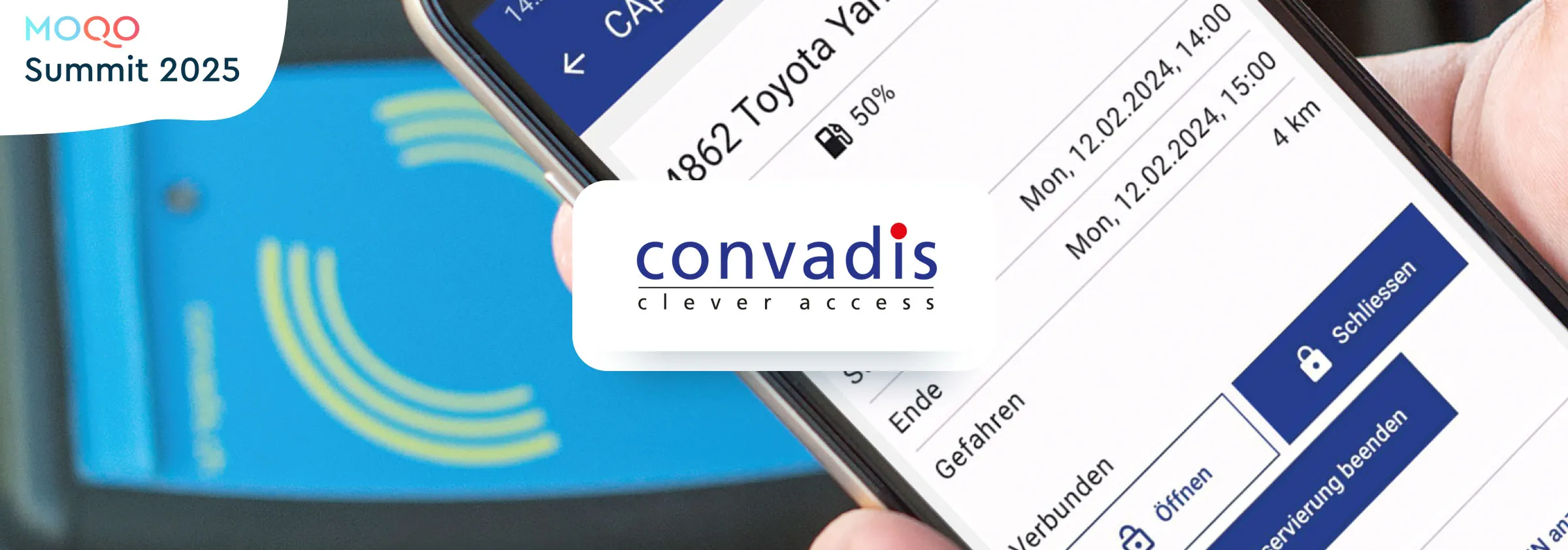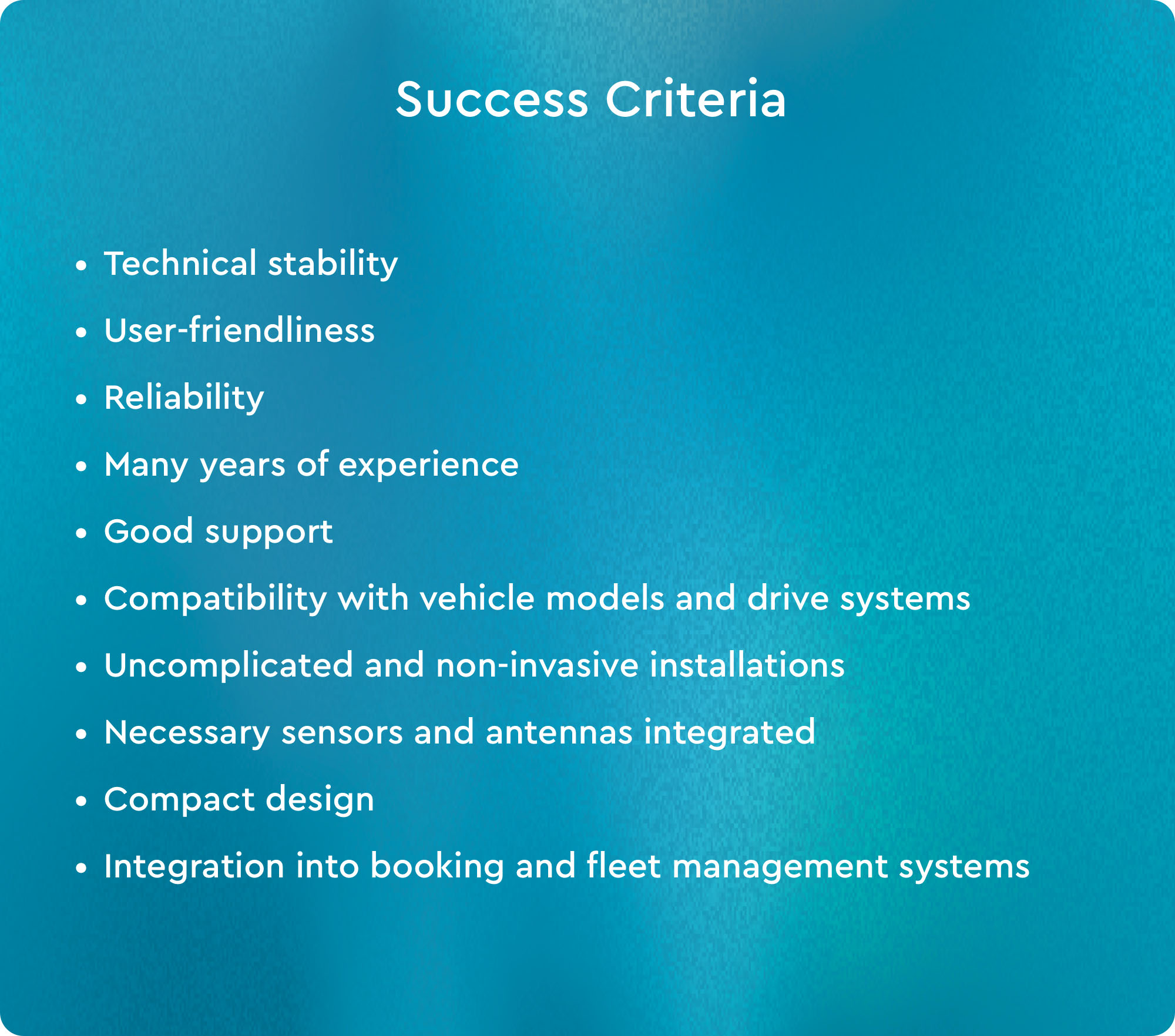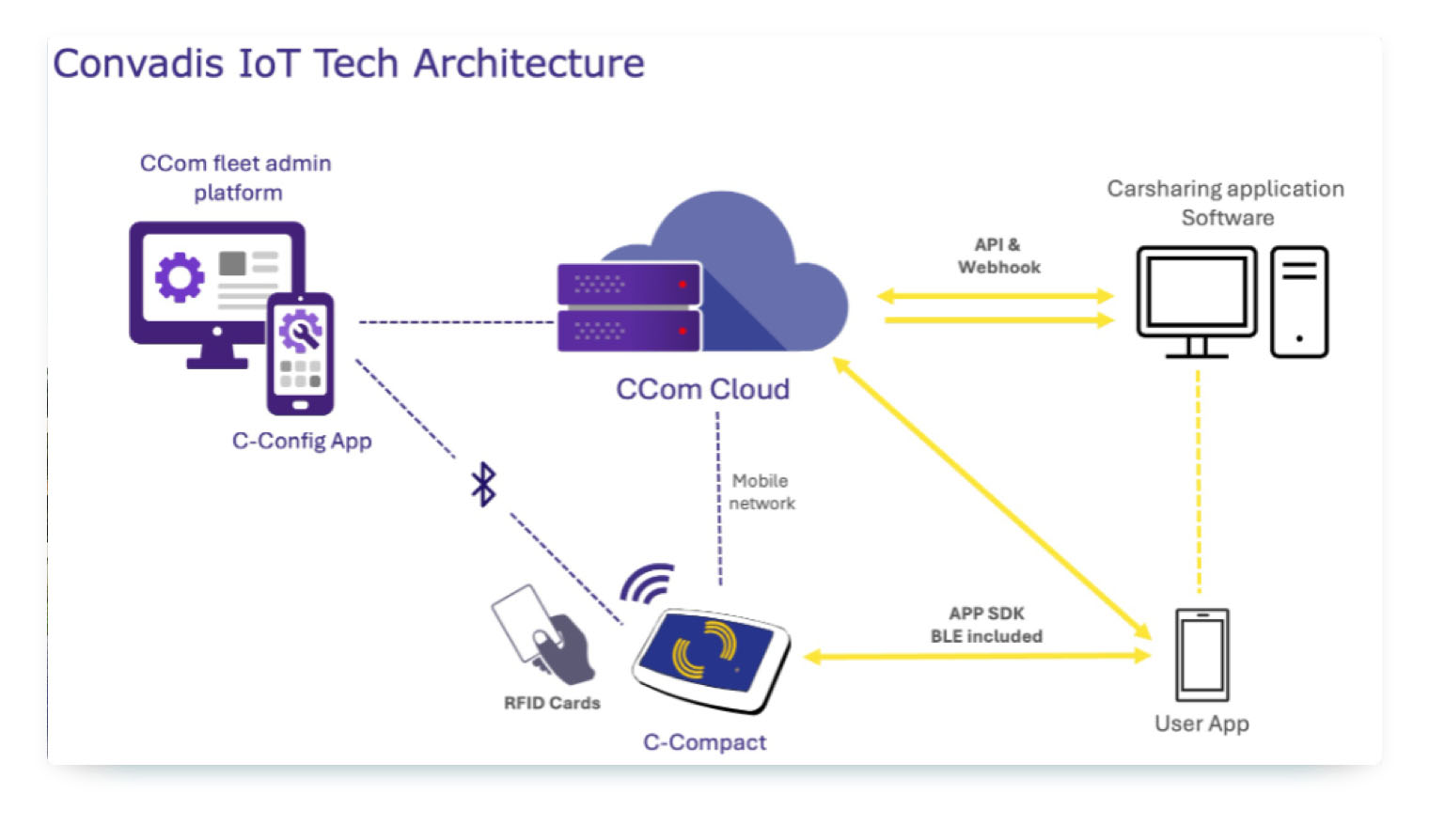
4 min read • March 24, 2025
Telematics systems are a must-have for carsharing providers in order to connect vehicles to booking and fleet management systems and to provide drivers with keyless access to their vehicles. In this interview, Reiner Langendorf, Partner at Convadis AG, tells us what is important when choosing telematics and how the market could change in the future.
Market

The Swiss company Convadis AG specializes in advanced telematics solutions for carsharing, car rental and fleet management. With over 30 years of experience, Convadis offers comprehensive IoT connectivity for vehicles, including the C-Compact telematics device, the CCom cloud-based platform and modern interfaces for seamless integration into existing software solutions.
Convadis' technology enables fully automated fleet management for stationary carsharing, corporate fleets and rental cars by providing digital vehicle access and collecting and transmitting relevant data for billing, maintenance and analysis.
Operating in over 25 countries, the company manages fleets of all sizes - from small start-ups to large carsharing and vehicle rental companies with thousands of vehicles. Its customers include Mobility (Switzerland), Naturenergie Sharing, Co-Wheels, FLEX Carsharing at CFL, Bilkollektivet, Bildeleringen, Stadtteilauto, A1 Digital and Popcar.
MOQO is one of the booking platforms with which Convadis works in partnership. The proven connection to MOQO provides sharing providers with a flexible, efficient and powerful complete solution
What are the decisive factors when choosing a suitable telematics system?
Reiner: When selecting a suitable telematics system, the reliability and many years of experience of the provider play an important role in ensuring stable and smooth system function. The compatibility of the on-board computer with all vehicle models and drive types is just as important as quick and easy installation. It should have all the necessary sensors and antennas, preferably integrated in a compact form factor. Cloud connectivity and seamless integration into existing booking and fleet management systems through open interfaces and standardized APIs are at least as important.
In your experience, what are the biggest challenges when using telematics in carsharing?
Reiner: The greatest challenges when using telematics in carsharing lie in the combination of technical stability, simple integration, high user-friendliness and economic efficiency. The solution must be compatible with all vehicle types, offer fast, non-invasive installation and be easy to dismantle. In addition, reliable support and professional installation assistance - including for new vehicle models - are essential to ensure smooth operation. A powerful and proven telematics system from an experienced supplier can help overcome these potential hurdles.

What is Convadis' vision?
Reiner: Convadis' vision is to actively shape the future of mobility through innovative technology and partnership-based collaboration with our customers. We use state-of-the-art IoT technology to automate processes, reduce operational costs and create solutions that adapt flexibly to our customers' requirements. We are convinced that carsharing and other forms of shared vehicle use are essential components of an energy-efficient, resource-conserving transport revolution.
Together with our partners and customers, we are working to make carsharing even more attractive, economical and simple and to integrate it into existing mobility concepts - for a smart and connected future of mobility.
What distinguishes Convadis products from other telematics systems?
Reiner: Convadis products are characterized by their holistic IoT solution, in which all relevant functions are integrated into a single compact device. Unlike many other telematics systems, C-Compact does not require any additional modules or external antennas, which significantly simplifies installation, reduces costs, results in less damage by users and high stability. In addition, Convadis offers a non-invasive, flexible installation that can be quickly dismantled. With over 30 years of experience and close collaboration with customers, Convadis develops reliable, robust and economically sustainable solutions that ensure smooth operation and long-term profitability.

To what extent do you have the future of (car) mobility in mind and are you preparing for it?
Reiner: The future of (car) mobility is facing exciting developments, particularly in the area of autonomous driving. We expect to see a continuous increase in flexible offers in individual transportation as consumers' mobility needs become increasingly diverse. Carsharing models and autonomous driving are not just trends, but complement each other perfectly. In the future, these technologies could not only make traffic flow more smoothly, but also significantly reduce CO2 emissions, as fewer vehicles will be needed for the same number of journeys. The integration of these technologies will fundamentally change the way we get around and enable more sustainable, flexible and user-friendly mobility.
Autonomous driving and how it might affect carsharing in the future →
What other trends and developments do you see coming our way?
Reiner: Remote drivers are an exciting trend that could revolutionize the carsharing industry. These are vehicles that are not driven autonomously, but by a remote driver. This technology could play an important role in the future, especially in cities or regions where autonomous driving is not yet fully developed or legally permitted. In addition, the use of microcars in carsharing is another promising trend that could shape the future of urban mobility. Microcars are compact, usually two-seater electric vehicles that are generally smaller, more economical and more maneuverable than conventional cars. They are particularly suitable for urban areas where traffic is dense and parking is limited.
Sway Mobility: Remote driving in carsharing →
"We have a long-standing partnership with MOQO in a variety of projects. We are delighted to be part of the MOQO Summit again this year. Here's to continued good cooperation and new exciting carsharing projects!"
Reiner Langendorf
Partner Convadis AG

In May, sharing providers, service partners and market experts will come together at the MOQO Summit 2025 in Aachen to inspire each other, learn from each other and develop new solutions together. Take the opportunity to present your questions and topics and make valuable contacts.